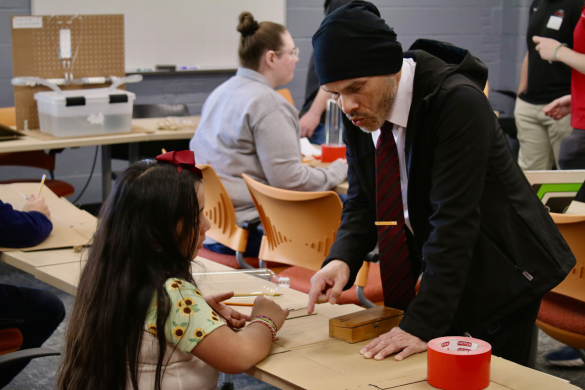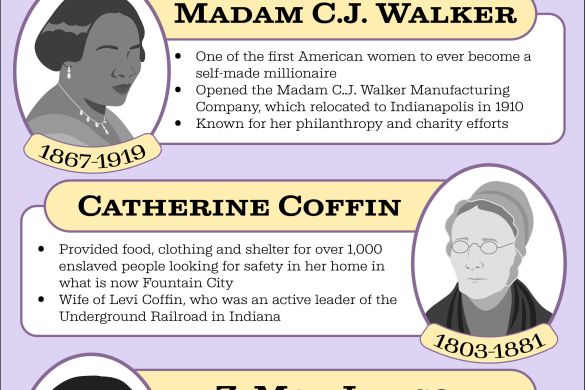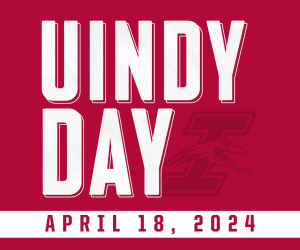Academic dishonesty and cheating affect every school, whether elementary, middle, high school or college, and the University of Indianapolis is no exception. In an informal poll of 109 UIndy students conducted by The Reflector, 27.8 percent admitted to cheating of some sort during their time at the university, while 67.6 percent admitted to having cheated while they were in high school. A related 2009 study in the psychological academic journal “Ethics & Behavior,” states that nearly 82 percent of college alumni have admitted to cheating or plagiarizing at some point while working toward their undergraduate degrees.
According to Interim Executive Director of Ron and Laura Strain Honors College and Associate Professor of History Jim Williams, when a professor has to pursue a case of cheating or plagiarism it goes beyond just a simple punishment and often creates a large amount of extra work for the professor.
“It’s up to each professor to what extent they want to pursue a case of plagiarism,” Williams said. “There is disincentive on the side of faculty for doing so, to some degree, because there is a fair amount of paperwork and hassle involved with not just processing the plagiarism case, but also working with the student one-on-one through it. When you see it as a professor, you sort of get this sinking feeling and say, ‘This is going to take a whole other five to 10 hours of my life just working on this one case.’”
Williams believes that plagiarism and cheating in college set up a mindset for some people that allows them to be dishonest in their lives and careers after college. He said, however, that the mindset is something that can be stopped while in college, if handled properly.
“I’m of the opinion that this [college] is the one place where we can begin to sort of chip away at a culture that leads to so many problems down the road for people, where they think it’s OK to take from somewhere else and pass it off as their own,” Williams said. “You read these horrifying cases of people who go on and get their Ph.D., and they’ve plagiarized that [work], or they write their resume or their CV [curriculum vitae], and they’ve plagiarized pieces of that. You see fraud committed at banks, and you’re thinking, ‘How could someone be that dishonest? How could they do that?’ The truth of the matter is that a lot of that behavior has already been built into them, because they have been doing it all along. So college is one of those places where we can sort of arrest that while a person is still developing.”
Associate Professor of Sociology Amanda Miller and Williams both said they have seen about two cases of plagiarism each year in their own classrooms since they began teaching at UIndy. Williams said that people who plagiarize often do not think about the effect that it has on others, including the author of the work or the other students in the class.
“If people steal something from the Internet, they don’t think about the impact that has on the person who created that [work] in the first place,” Williams said. “And they certainly don’t think about their fellow student who—an example I give in my intro courses—stayed up until four in the morning hopped up on Red Bull banging out a really bad, C minus paper, but they did it. They suffered, they turned in a crappy paper, but it’s their own. So why should they [the plagiarizing student] get a better grade, or equal grade or any grade when all they did was download something from the Internet and pass it off as their own? I see that as stealing a grade from the student sitting next to them.”

 Professor of History and Political Science James Fuller said that he ran across one of the strangest cases of plagiarism he has ever seen while working as a teaching assistant.
Professor of History and Political Science James Fuller said that he ran across one of the strangest cases of plagiarism he has ever seen while working as a teaching assistant.
“When I was early in my career, I was a teaching assistant for a professor who had assigned this paper to the students and I had to grade it,” Fuller said. “I started grading it, and portions of it seemed really familiar, and I thought, ‘What is this?’ It turns out the guy had plagiarized from a book written by the professor who taught the class. I brought it to him [the professor], and he said, ‘I don’t know whether to be flattered or dumbfounded.’”
According to Fuller, buying academic papers online has become a prevalent problem in today’s world of teaching. He said the Internet makes cheating easier and more tempting, but also easier for professors to catch cases of plagiarism. He said that to do a “good,” thorough job of plagiarism, without being caught, a student has to put in almost as much work as it would take to actually write the paper.
“I just didn’t realize how much of it [buying papers online] was going on until I started catching it,” Fuller said. “And what’s interesting to me—it’s kind of ironic I guess—is that of the people I have caught buying papers, they’ve bought papers that I would consider a C level at best. You’re not even buying good papers. I mean if you’re going to buy a paper, buy a good paper. They are just really lousy. So even if I had just graded them, it wouldn’t be more than an average grade at best.”
Williams believes that students often cheat or plagiarize because they have no particular interest in the subject matter of that particular course.
Miller said the main reason students cheat is that they do not manage their time properly or underestimate the amount of hard work needed to complete an assignment.
“I think students cheat because they don’t know how to manage their time well,” Miller said. “They don’t allot the proper amount of time for an assignment, and then they get panicky at the end, when they realize this isn’t something that can be accomplished in one night. I also think sometimes they look at what a professional has written and say to themselves, ‘There’s no way I could ever write anything that well.’ And I always explain to my students that when you read my written work that’s been published, it’s probably the 10th to 15th time I’ve actually written that same paragraph entirely over again. So I would never expect my students’ writing to look like something that gets published.”
Miller said that she often works with her students and allows them to submit papers into Turnitin.com in order to catch any potential plagiarism within their papers. She said that she looks over her students’ papers during the early stage of their writing in order to catch any early signs of accidental plagiarism and help fix that before the student actually turns in the paper.
“Part of what I love about being at UIndy is that I get to teach students how to do the right thing, and I don’t know that everyone gets that opportunity,” Miller said.
Cheating and plagiarism have been going on since schools have existed and will continue to go on. However, professors often use the Internet as a tool to help eliminate plagiarism at the collegiate level. Fuller, Williams and Miller, along with other professors at UIndy hope to catch this practice early on and have a positive impact on the lives of their students.








